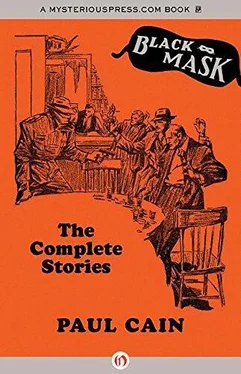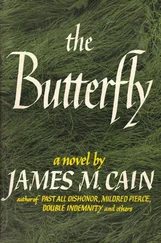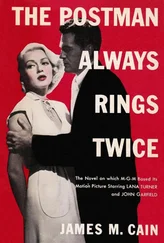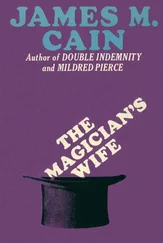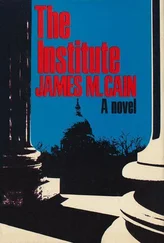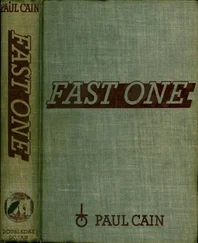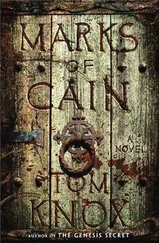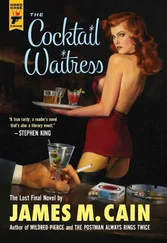The Paul Cain Omnibus:
Every crime story and the novel Fast One as originally published
(Black Mask)
Paul Cain by Boris Dralyuk
Coleman said: “Eight ball in the corner.”
There was soft click of ball against ball and then sharper click as the black ball dropped into the pocket Coleman had called.
— Paul Cain, “Murder Done in Blue”
Somebody always takes it about as far as it’ll go, and no one took the hard-boiled farther than Paul Cain.
Raymond Chandler tagged Cain’s only novel, Fast One (1933), as “some kind of high point in the ultra hard-boiled manner.” They use that as a blurb; to my mind, those qualifications — “some kind,” “ultra” — reek of anxiety. Stacked pound-for-pound against Cain’s lean and war-hardened antihero Gerry Kells, Chandler’s Philip Marlowe comes off like a flabby, eccentric chatterbox — more Sydney Greenstreet than Humphrey Bogart.
The novel’s title says it all: Fast One . Some have called it A Fast One or The Fast One , but that’s not it. There’s neither need nor time for articles. Someone or something, in the singular, is fast. Fast and singular. And the chase is on:
Kells walked north on Spring. At Fifth he turned west, walked two blocks, turned into a small cigar store. He nodded to the squat bald man behind the counter and went on through the ground-glass-paneled door into a large and bare back room.
There’s so much momentum in those first lines — so little besides movement — that the reader can hardly keep up, much less take a pause. A pause might raise some questions. Just how does Kells get through that ground-glass-paneled door? Does he open it? Bust right through it? Roll through it as if it didn’t exist? But, of course, the door doesn’t exist. Cain’s language is stripped so bare it’s hardly referential. That’s the central paradox of the hard-boiled style: For all its reputed hardness, the universe it conjures is eerily immaterial — verbal, not substantive. Hard-boiled protagonists throw punches indefatigably, get blackjacked unconscious at the end of one chapter only to emerge with a slight headache at the start of the next, and keep moving to the last.
Cain’s characters aren’t people, they’re billiard balls, propelled by an initial push and colliding till they’re all sunk — “One, Two, Three,” as the title of one of his stories has it. Fast One ’s first chapter, which starts with Kells rolling down Spring in downtown L.A., set to spark a gang war, ends with a kind of carom shot involving a gambler named Jake Rose and a pint-sized triggerman:
Rose came around the desk and took the automatic out of Kells’ belt, held it by the barrel and swung it swiftly back and then forward at Kells’ head. Kells moved his hand enough to take most of the butt of the automatic on his knuckles, and bent his knees and grabbed Rose’s arm. Then he fell backwards, pulled Rose down with him.
The little man came into the room quickly and kicked the side of Kells’ head very hard. Kells relaxed his grip on Rose and Rose stood up, brushed himself off and went over and kicked Kells very carefully, drawing his foot back and aiming, and then kicking very accurately and hard.
The kitten jumped off the desk and went to Kells’ bloody head and sniffed delicately. Kells could feel the kitten’s warm breath. Then everything got dark and he couldn’t feel anything any more.
That kitten is a nice touch. Sniffing, “delicately,” at a not-quite-dead piece of meat. Just another animal, drawn to a meal.
It’s hard to believe that the first installment of Fast One , which debuted in the March 1932 issue of Black Mask , is Cain’s first appearance in print. He hit the ground running. The novel sets the pace for Cain’s other stories, while Kells sets the mold for their protagonists: obdurate plug-uglies or clever machers, such as the titular narrator of “Black” (May 1932); or Red, who narrates “Parlor Trick” (July 1932) and “Trouble-Chaser” (April 1934); or “St. Nick” Green of “Pineapple” (March 1936). Black, Red, Green — beautifully rendered abstractions careening across the flat surface of Cain’s prose.
Cain got his break thanks to Captain Joseph T. Shaw. In 1926, Shaw took the helm of what was then called The Black Mask magazine, a matrix for the hard-boiled style. (One of Shaw’s first acts as editor was dropping the “ The ” from the magazine’s title.) Twelve of the fifteen hard-boiled stories reprinted in this volume first appeared in Black Mask , along with the five stories that were eventually sutured together as Fast One . Shaw’s previous star contributor, Dashiell Hammett, left the magazine in 1931, the year Cain arrived. Shaw himself was forced out by the publisher in 1936, the year Cain’s last story appeared in the magazine. Cain wasn’t just Hammett’s successor, to Shaw’s mind: “in the matter of grim hardness,” he wrote, Cain was Hammett’s superior. “Dash paused on the threshold, [Cain] went all the way.” [1] Joseph Shaw, discarded introduction to The Hard-Boiled Omnibus (1946), box 5, folder 6, of the Joseph T. Shaw Papers (2052), UCLA’s Young Research Library. Quoted more extensively in E. R. Hagemann, “Introducing Paul Cain and His Fast One: A Forgotten Hard-Boiled Writer, a Forgotten Gangster Novel,” Armchair Detective 12, no. 1 (January 1979): 75.
Whatever Shaw meant by “grim hardness,” it isn’t to everyone’s taste. An earlier edition of Cain’s stories from Centipede Press carried brief, perceptive introductions by leading names in crime writing, including Ed Gorman, Joe Gores, Edward D. Hoch, John Lutz, and Bill Pronzini. Most of the commentators were duly reverential, but some couldn’t hide their qualms. While Robert Randisi noted that Cain’s work is “[b]etter than most” of the Black Mask set, he still ranked it “a notch or two below that of Chandler and Hammett.” As Gorman put it, “[t]here is in Hammett a great sorrow and in Chandler great melancholy. Not a trace of either appears in Cain.”
What Gorman mourns is the absence of an emotional load. But that lack is only the symptom of a profounder vacancy. Hammett was an inveterate lefty, and used the Continental Op to lance capitalism’s Poisonvilles, while Chandler, who admits to having learned “American just like a foreign language,” forever remained an outraged public school boy, pinning his hopes for civilization on a medieval knight in a powder-blue suit. One red and the other reactionary, both Hammett and Chandler harbored strong convictions — convictions expressed, whether intentionally or not, through their chosen genre. Not so with Cain, who seems to have been free of any such burden. The main thing his work expresses is the genre itself, in all its inexorable but essentially meaningless logic. He’s the oracle at Black Mask , huffing the fumes of Capt. Shaw’s cigars and delivering an almost unmediated vision of the hard-boiled as such.
In “Back in the Old Black Mask ” (1987), the writer and historian William Brandon, who cut his teeth at Shaw’s “rough paper,” recalled his early mentor’s thoughts on “objective writing”:
Objectivity was part of what Shaw meant by style — a clean page, a clean line, an uncluttered phrase. I remember him showing me a couple of lines in a manuscript of Raymond Chandler’s, something such as, “I looked into the fire and smoked a cigarette. Then I went to bed.” This was the key line of the story, Shaw said. In those few minutes watching the fire the protagonist thought the problem through and reached his tough decision. You weren’t told that but you knew it. The line was clean, the effect was subtle but strong. Objective writing was good hard prose as against the spongy prose of subjectivity. [2] William Brandon, “Back in the Old Black Mask ,” The Massachusetts Review 28, no. 4 (Winter 1987): 707.
Читать дальше
